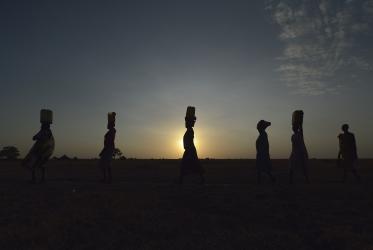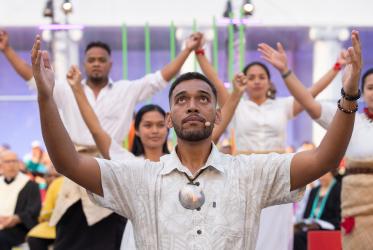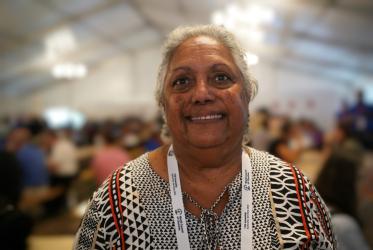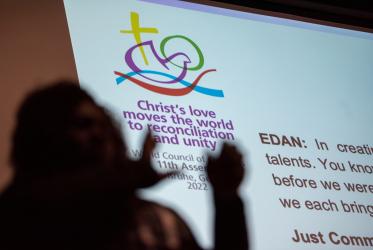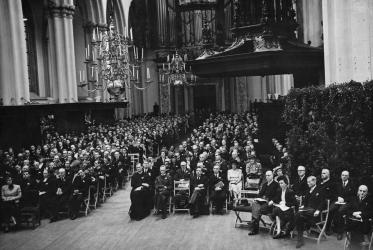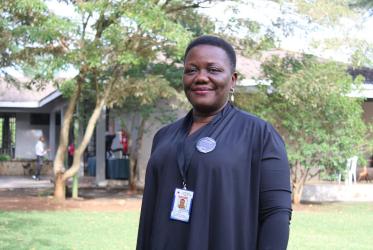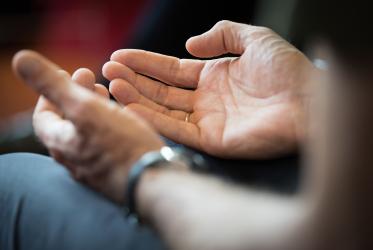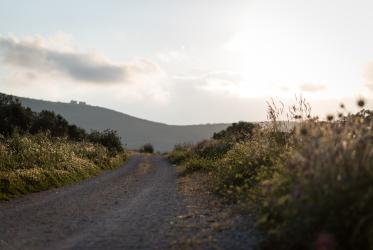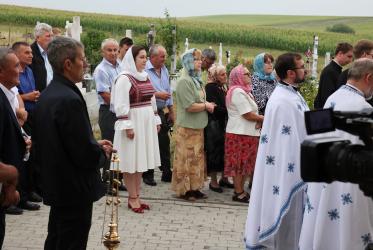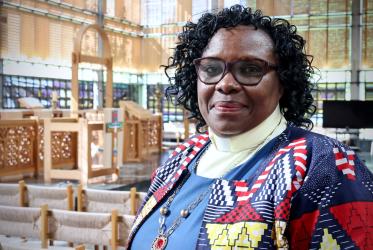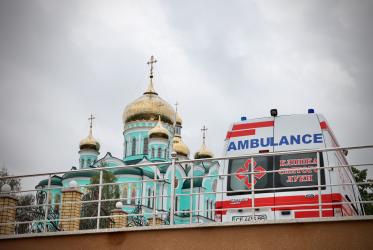Displaying 401 - 420 of 1095
01 September 2022
Brunnen: a well of faith-inspired initiatives
01 September 2022
#ThursdaysinBlack: Stories flow from the Waterfall Tapestry
01 September 2022
Invitation for media to the 11th Assembly press conference, 1 September
01 September 2022
Women with disabilities want to belong in churches
31 August 2022
“My hope is in you”—youth in the Holy Land carry the future
17 August 2022
Monastery in Ukraine responds to the consequences of war
09 August 2022
